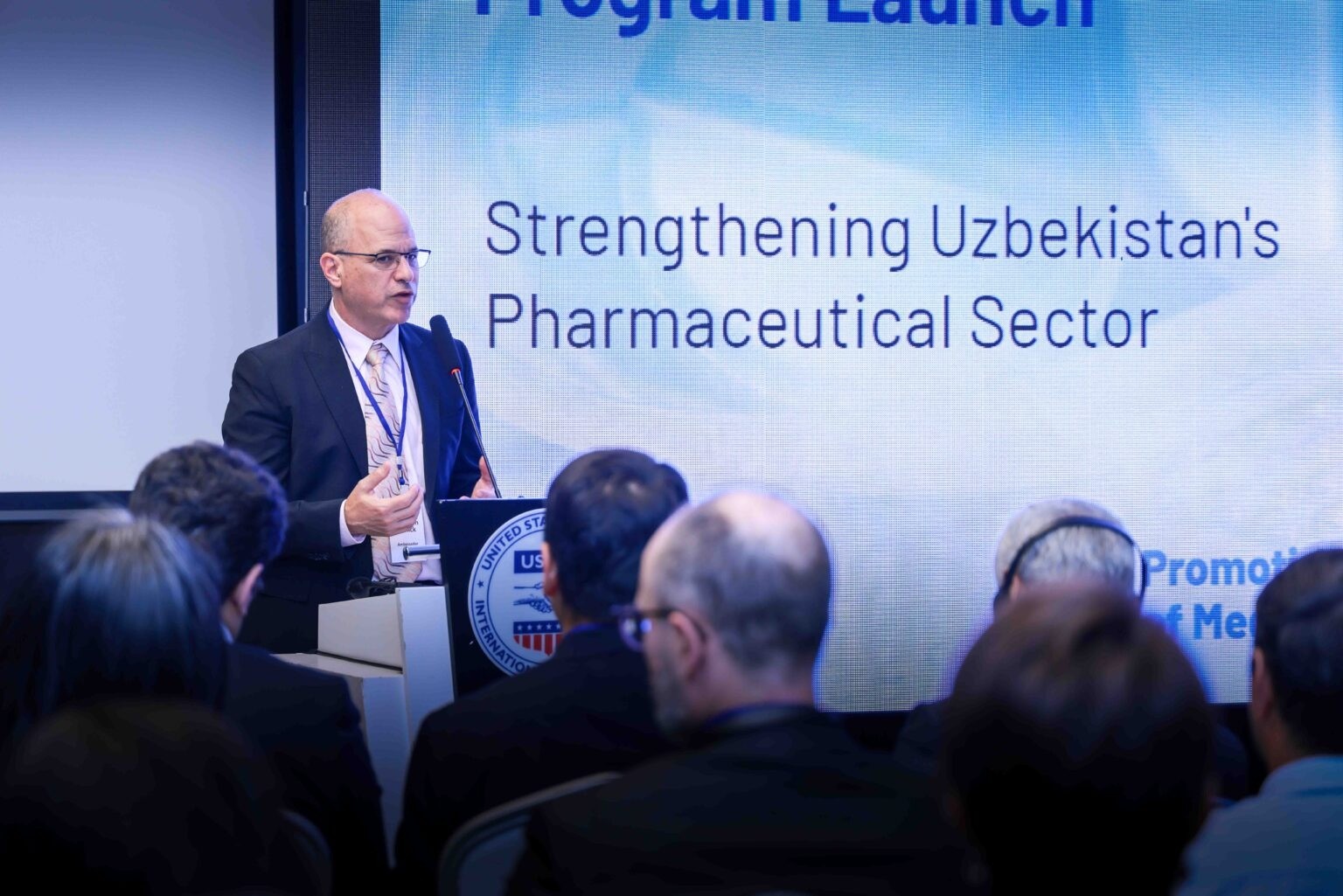The U.S. started the USAID Diversifying Asia’s Pharmaceutical Supply Chain project in Uzbekistan. This announcement was made during the event attended by U.S. Ambassador to Uzbekistan Jonathan Henick, representatives from the Ministry of Health, and the Agency for Development of the Pharmaceutical Industry.

The project, with a budget of $2.5 mn, will run for two years. Its aims include:
- Improving local pharmaceutical regulations
- Advancing local technology and workforce skills
- Attracting investment into the pharmaceutical sector
Additionally, the project aims to ensure that medicines produced in Uzbekistan meet both national and international quality standards.
A primary goal of the project is to enhance domestic medicine production, thereby increasing the sector’s contribution to the nation’s economic growth.
Uzbekistan is Central Asia’s largest pharmaceutical supplier, with over 220 private manufacturers. However, the country still heavily relies on imported medicines and raw materials. To address this issue, the Government of Uzbekistan provides support and incentives for local manufacturers, including import substitution and quality control regulations.
Currently, Uzbekistan produces approximately 45% of its medicines. The government aims to increase this figure to 80% by 2026.
Follow Daryo's official Instagram and Twitter pages to keep current on world news.
Comments (0)